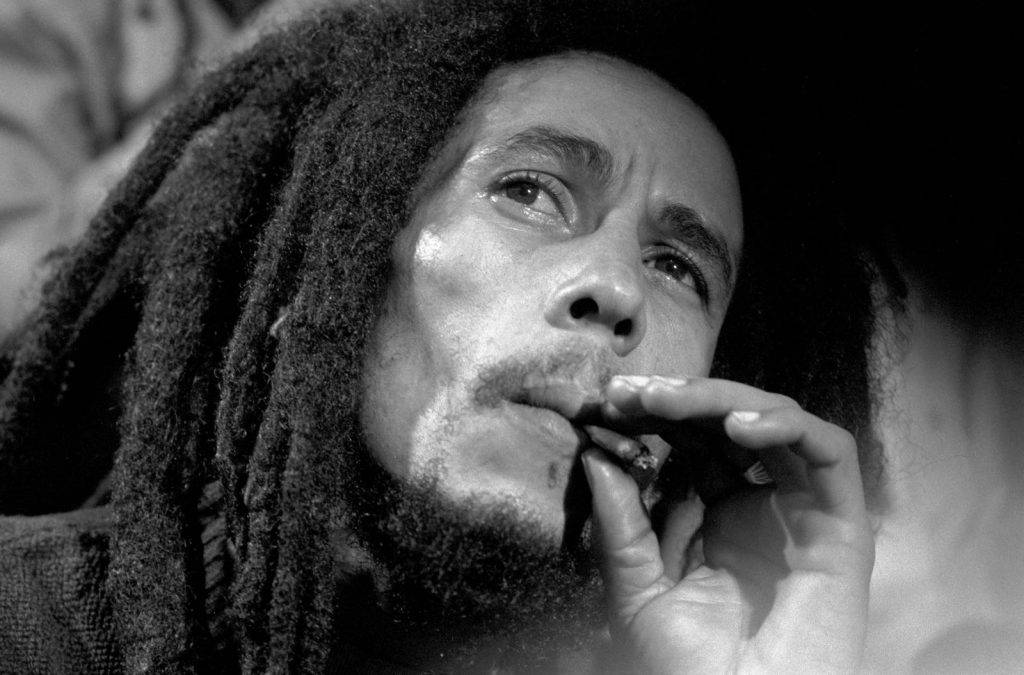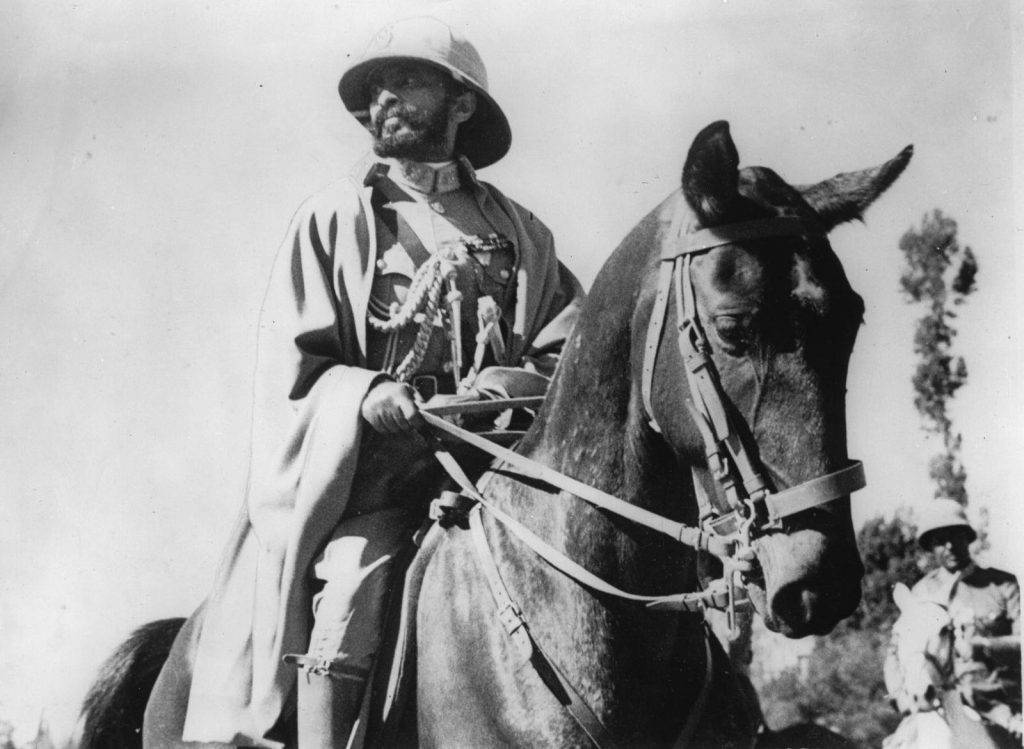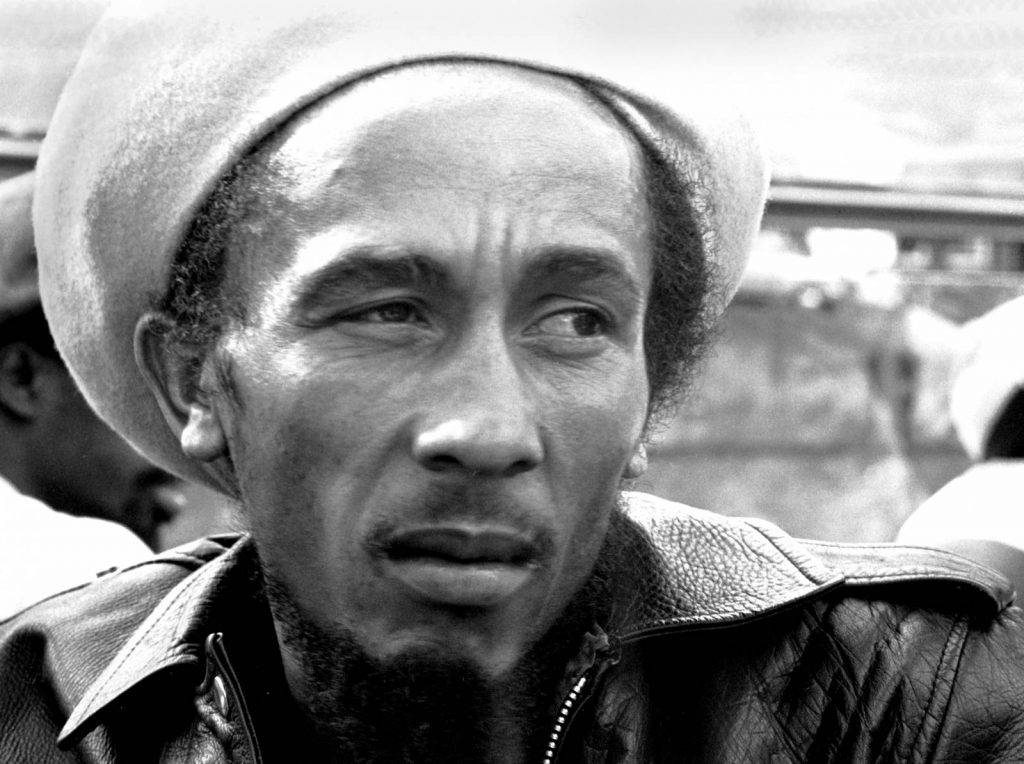Christianity tells us to worry about hellfire; Bob Marley tells us ‘Don’t worry about a thing’. Drew Forrest looks at the Jamaican singer’s timeless appeal
Play I some music: dis a reggae music …
Roots rock reggae: dis a reggae music …
Hey Mr Music, sure sounds good to me!
I can’t refuse it: what to be got to be!
What is Bob Marley’s 1976 song Roots, Rock, Reggae saying? On the face of it, not much. He wants “Mr Music” — presumably a DJ — to play some reggae. And he boasts, playfully, that his songs are “bubbling” on the charts “like a mighty dread”.
It was Marley’s only single to break into the American Top 100 during his lifetime.
But, as so often with this master songsmith, seemingly trivial words carry a weighty sub-text. Music is an irresistible, quasi-religious imperative (“I can’t refuse it”), almost a destiny (“What to be got to be”).
All his songs, no matter how worldly on the surface, are devotional. Reggae is the music of freedom and togetherness: “Feel like dancing, dance ‘cause we are free/ Feel like dancing, come dance with me!”
Even the composition of Roots, Rock, Reggae, reflects the value of mutuality. Reggae songs were often the work of many hands and, like Marley’s signature track, No Woman No Cry, it seems to have been a collaboration with Jamaican songwriter Vincent Ford.
Music and its divine potency are also the theme of Trench Town Rock, which conjures the West Kingston slum of Marley’s childhood, scarred by the “trench”, an open sewer. It was here, among Jamaica’s underclass, that reggae was born.
Originally “rege-rege”, Jamaican patwa (patois) for “ragged clothes”, it soothes remembered misery —“when it hits you, you feel no pain” — but also arouses pity for the many who are still “living small”. “Don’t turn your back”, he urges the “some” who are living big, “… never let the children cry.”
Music, dance, sex and ganja, the Rastafarian sacred herb, are seen as sacraments — varieties of sensory transcendence in which the sweet chariot swings low.
Through its elaborate slowness, “skanking” — first danced to reggae’s parent, ska — takes on a meditative quality: “Take it easy (easy skankin’)/ Lord I take it easy! (skankin’ it slow).”
Even Jamaica’s benevolent climate is seen as divine grace. Praise Jah for the sun’s sweet rays, Marley urges, followed by the lyrical effusion: “When the morning gathers the rainbow/ Want you to know I’m a rainbow too.”

Christians are so accustomed to the idea of faith as woe and self-flagellation — the hair shirt, the solitary cell, Christ’s “bloody sweat and agony” — that Marley’s idea of observance through sensory delight seems almost blasphemous.
It is a theme, a theological position, to which he constantly returns: “Live it up (x4) … give Jah all the thanks and praises” (Crisis); “We’re jammin’ in the name of the Lord” (Jamming).
Although he draws heavily on the language and prophetic tropes of the Christian Bible, he is hostile to the mainstream churches and what playwright George Bernard Shaw called “Crosstianity”: “Feel like bombin’ a church/ Now … that you know the preacher is lyin” (Talking Blues).
Nowhere in his songs is the crucifixion mentioned, and he is utterly removed from the morbid sense of sin and body horror of St Paul, St Augustine and their life-denying heirs.
There is no hell in his songs, indeed no Last Judgement or afterlife in the Christian sense. Life this side of the grave is what interests Marley; heaven, to which the entire black diaspora is invited, is the African millennium.
Nor does he believe in the foul-tempered, gouty old white man who passes for God in the Western imagination, William Blake’s “Noboddady [nobody’s daddy] aloft/ [who] farted and belched and coughed.”
Sin is “Babylon”, which for early Rastafarians meant Jamaica’s oppressive colonial government and police, but which Marley, Peter Tosh and others of their generation broadened to encompass the entire neo-imperial West, including the United States.
“Rasta don’t work for no CIA,” Marley scolds in Rat Race. Indeed, the whole song can be seen as a complaint about the US, its violence, bullying relations with the poor South and “rude” competitive values.
Politics and religion were intertwined from the start of Rastafarianism in the 1930s. Raised as an Anglican, its founder, Leonard Howell, relocated the millennium to Ethiopia and its newly crowned emperor, Haile Selassie (“Might of the Trinity”, formerly Ras Tafari Makonnen), whom he identified as the “Black Messiah”.
Howell was deported from the US, jailed in Jamaica for subversion and locked in an asylum after baiting the authorities, established church and planter elite with his outspoken attacks on colonial rule and white supremacy.
Police repeatedly raided his Rastafarian settlement, Pinnacle — in part because it used and traded ganja — finally shutting it down in 1958.
There is a direct line of succession from Howell to the anti-racism, anti-colonialism and Pan Africanism of Marley, Tosh, Black Uhuru and Burning Spear.

Belief in the divinity of Haile Selassie was and remains a core tenet of Rastafarianism, and there can be no doubt that Marley embraced it. (During Selassie’s visit to Jamaica in 1966 Marley’s wife, Rita, claimed to have seen the scars of the nails on his palms.)
Nine years later the “Lion of Judah” was dead, probably strangled on the orders of Ethiopia’s murderous military junta.

But an article of faith can be factually wrong while embodying spiritual truth. Marley visited Shashemene, the settlement for diaspora Africans built on Ethiopian land donated by the emperor — but significantly, chose not to live there.
His stirring anthem Exodus is at one level about the return of Jah’s flock to their ancestral homeland, from which they were exiled by slavery. But at another, deeper level it is about a spiritual journey to “our Father land” from the corruption, greed and self-serving of Babylon.
“Are you satisfied with the life you’re living?” Marley asks. “We know where we’re going, we know where we’re from.”
Repeatedly, he calls for honest self-scrutiny and nakedness before Jah (I ’n I) as the path to the authentic life: “Open up your eyes and look within” (Exodus); “There ain’t no hiding place from the Father of Creation” (One Love); “Ya runnin’ and ya runnin’/ but ya can’t run from yourself” (Running Away).
Of Marley’s four sacraments, sex — regulated by every society and organised religion, usually to the detriment of women — is the most complicated.
African American theologian Noel Erskine points out that Rastafarian women, subject to the “King-man” or “God-man”, are generally confined to rearing his children and keeping his household.
In his book From Garvey to Marley, Erskine shows how Rastafarianism fuses deep-rooted patriarchal attitudes in Jamaica with the Hebrew Bible’s fixation on female modesty and ritual cleanliness. In line with the Levitical code, menstruating women are considered unclean and may not join in worship or prepare food.
I-Drens (male Rastas) tend to view them as the corrupting descendants of the temptress Eve. Because their hair is “their beauty and their shame” they must cover their heads, while men flaunt their dreadlocks in compliance with Rasta Ital livity (natural living).
At Shashemene this is taken to extremes: women going to market are reportedly timed to guard against infidelity and punished if they return late.
Marley had 12 children with seven mothers, but in matters of sex he was no conventional Rastafarian.
Indeed, he is virtually unique in popular music as a self-styled prophet, Jah’s emissary, who composed some of the world’s most soulful love songs. There is none of the misogyny and strutting machismo that perverts gangsta rap and Jamaican dancehall.
“Don’t shed no tears,” he consoles in No Woman, No Cry. His most romantic album, Kaya, sings of mutual tenderness and protection: “We’ll be together with a roof right over our heads/ We’ll share the shelter of my single bed.” (Is This Love?)
Sung from a woman’s perspective, Precious World is a non-Rastafarian plea for female self-determination. “If you let me be myself/ I’ll be yours forever/ Don’t take from me / What’s mine.”
Waiting in Vain, supposedly about former Miss Jamaica Cindy Breakspeare, mother of Damian Marley, goes further, showing the singer’s suffering self-abasement before the loved one: “It’s been three years since I’m knockin’ on your door/ and I still can knock some more,” he gently pleads.

What distinguishes Marley from the mere entertainers is the radiant humanity that shines through all his songs.
By temperament he was a lover of freedom, but Rasta culture — flowing from a small decentralised movement with no hierarchy, liturgy or official dogma — strengthened his sense of being a barefoot prophet, divinely mandated to speak his mind. “There ain’t no rules, ain’t no vow, but we can do it anyhow” (Jamming)
Reggae was the music of the ragamuffins and wanga-guts of downtown Kingston, and Marley spoke for them.
But he also spoke for a vast world community that hungers after bread, peace and justice, and an end to the age-old dominion of the “downpresser man”.